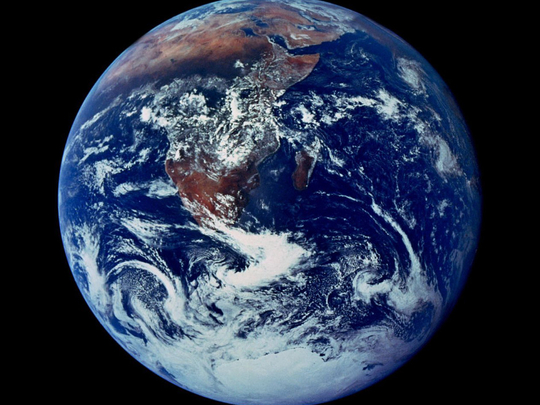
Of course Blue Planet II is the year’s most watched TV show . That was always going to be the case. Half of Bake Off’s audience naffed off the instant it left the BBC. This year’s Strictly has been hamstrung by its colossal shrug of a lineup, while X Factor — never the most placid watch in the first place — has become Brexit-themed Kabuki theatre performed inside an exploded retina. There was never any competition.
Blue Planet II has it all. It’s expansive and profound, showing us the sort of inexplicable wonders we tend to forget about during the tedious mundanity of our everyday put-the-washing-out-and-stress-eat-a-bun lives. It’s narrated by our last true national treasure. There’s a hint of dented patriotism tucked away in there, too, given that this sort of prestigious wildlife documentary is the only remaining form of entertainment that Britain can legitimately say it is best in the world at.
It appeals to everyone as well. If you’re an environmentalist, there are heavily implied messages about man’s destruction of the oceans . If you enjoy the majesty of nature, it paints its pictures on a bigger canvas than you’ve ever seen. If you’re a fan of flat-out 4K spectacle, every frame will blow your mind. If you happen to be into horror, then — ta-da! —here’s a fish with a see-through head that essentially looks like someone has tried to wrap a cloud of vomit in clingfilm. If you’ve vowed never to set foot in the sea again, not since you went paddling on holiday in Sicily in 2013 and you felt a thing brush against your ankle — let’s call this a hypothetical situation, for the sake of my dignity — then it proves you completely right over and over again. Even my two-year-old loves Blue Planet II, and all he usually likes are badly animated hour-long nursery rhyme playlists on YouTube. To break into unforgivable executive-speak for a moment, there is not a demographic on Earth that Blue Planet II doesn’t absolutely nail.
But, there’s something more at play, and to explore that we have to travel back to the original series 16 years ago . I can remember with uncharacteristic clarity watching the first episode of The Blue Planet, and that is thanks to its context. BBC One broadcast the first episode at 9pm on September 12, 2001, and it felt spectacularly necessary. Graphic images of the twin towers in flames were on the front of every newspaper. Television schedules were shoved to the wall in favour of rolling news coverage. It was the topic of every conversation, no matter where you went. The anxiety of the moment was suffocating.
And then the clouds broke. At roughly the same time that most broadcasters were overcooking September 11 coverage, setting clips of the attack to a Gounod oratorio, BBC One treated us to the most soothing thing imaginable. The Blue Planet, with its whispered narration, gently pulsating light and quiet wub-wub noises, was a screensaver. It was a lava lamp. It was the closest that television had ever got to letting you crawl back into the womb, right at a moment when everyone wanted nothing more than to ball themselves up in a duvet and shut the world out. Hand on heart, I have never been more comforted by aTV programme before or since.
This, I suspect, may also be part of Blue Planet II’s appeal. The world-jolting shock of 9/11 has not been repeated, but it feels as if it has been ground down and is being fed back to us a spoonful at a time around the clock. The day that the most recent Blue Planet episode was broadcast, 26 people were murdered in a church . A few days earlier, a man in a rented truck murdered eight people. Many more terrible things will have happened by the time the next episode airs because this is the way the world works now. It’s relentless, and we are weary.
Blue Planet II is the perfect tonic to that. Viewers can take whatever message they want from it. If they want to see the ocean as a tranquil place untouched by the horrors of man , they can. If they want to see the death and fear of life on the surface reflected back in a primal way, they can do that, too. If they just want to switch off their brains entirely and let an unbroken flood of shapes and colours wash over them, then — well, watch the siphonophorae segment from Sunday’s episode; it looked and sounded like the sort of thing that should have been beamed on to the back wall of an Orb concert in 1992. It was like bathing in warm custard while your old iTunes visualiser didits magic on a Brian Eno album. It was a firework display, without all the noise and wazzocks. It was precisely as calming as you needed it to be. And that’s why people are glomming on to Blue Planet II as hard as they are; because it provides actual, tangible respite from the horrors above the ocean. And possibly because it’s fun to see a killer whale kick the ever-loving crap out of an undeserving pile of fish. We probably shouldn’t rule that out either.
— Guardian News & Media Ltd
Stuart Heritage writes about film, TV and music for the Guardian.












